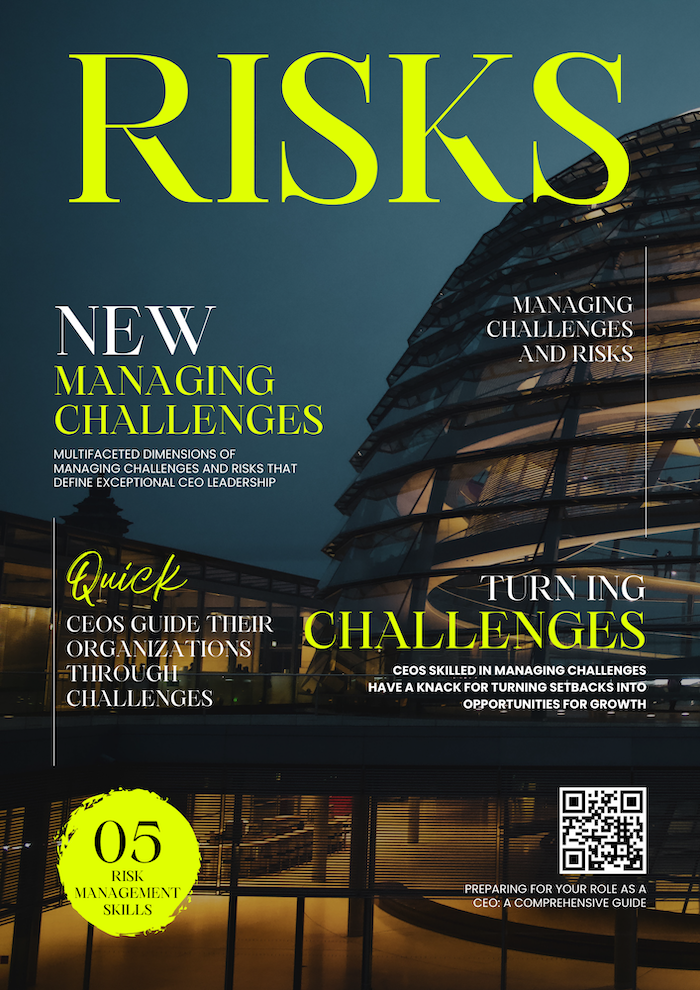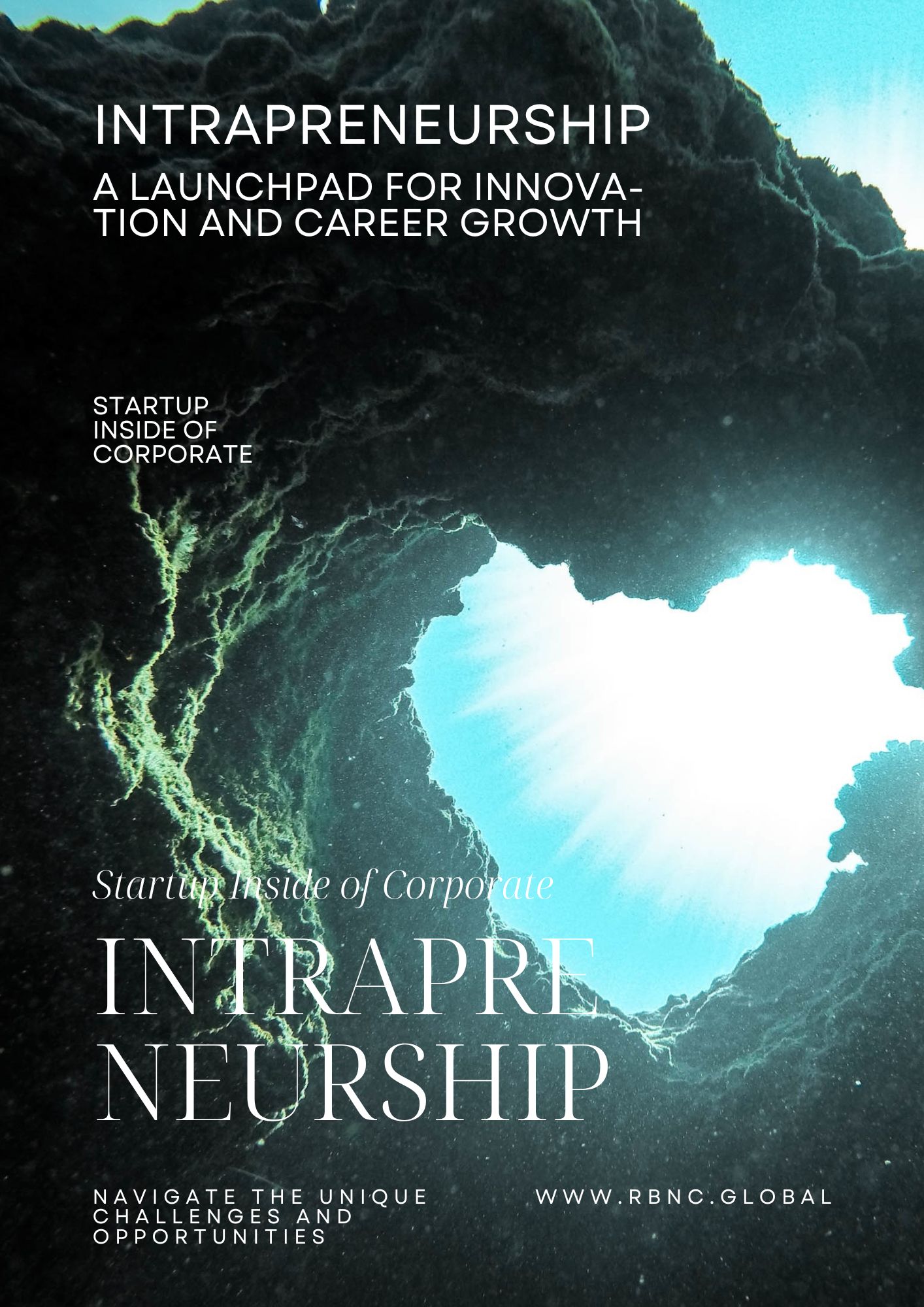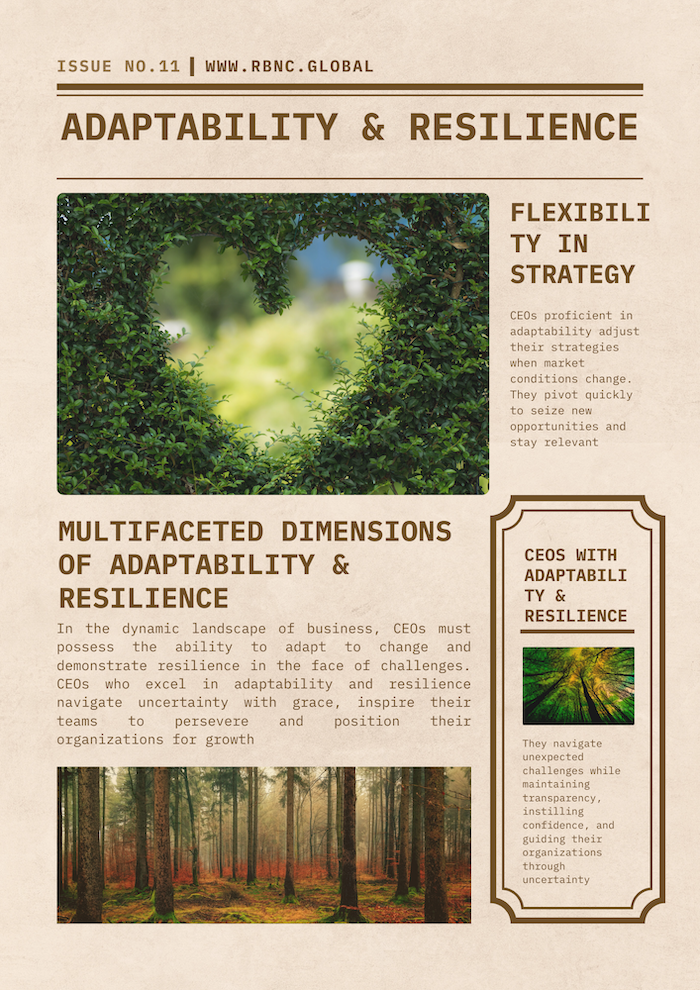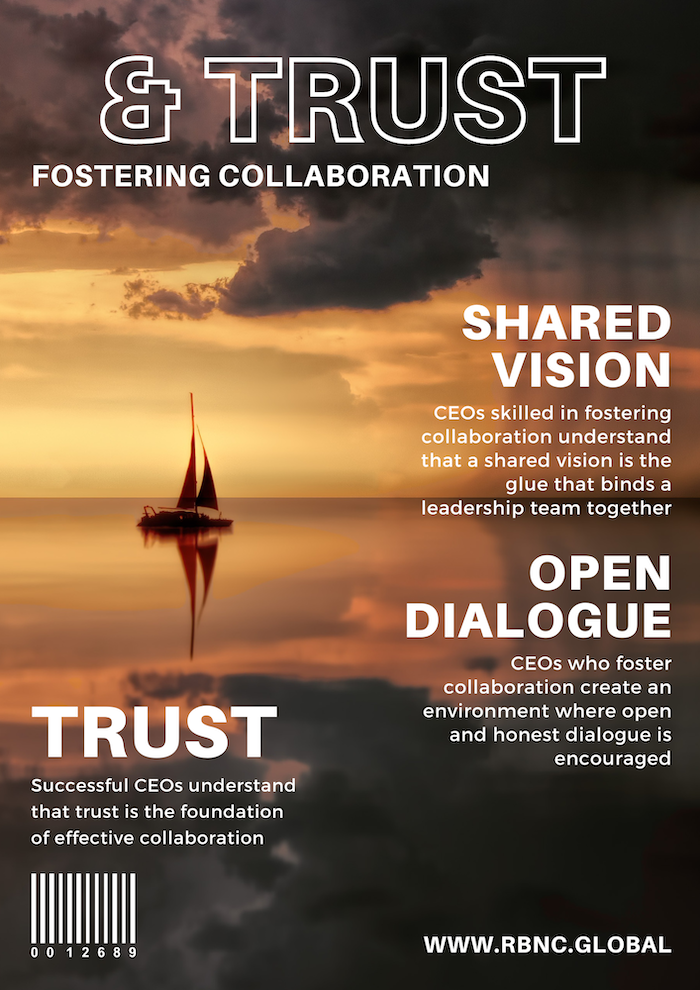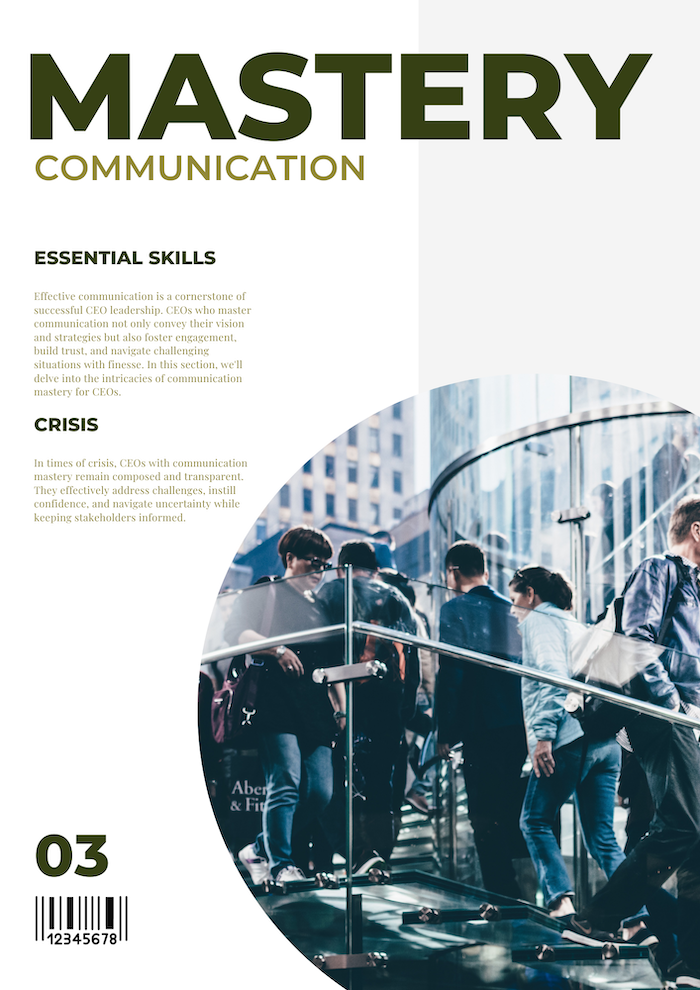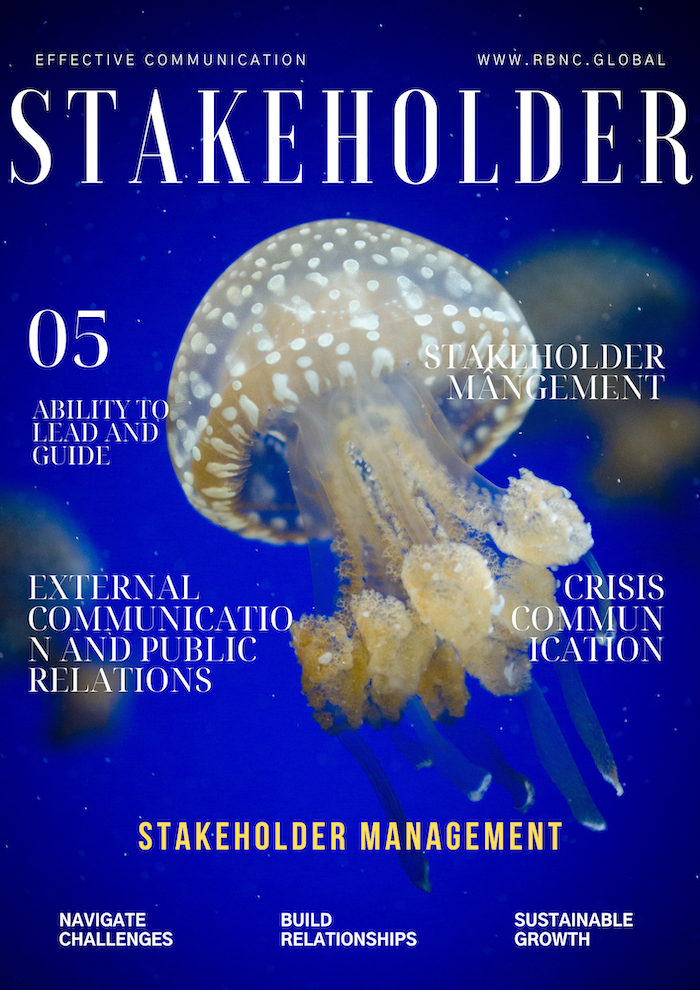Chapter 6: Managing Challenges and Risks
Managing challenges and risks is a pivotal aspect of a CEO's role in guiding the organization through uncertainties, setbacks, and potential disruptions. CEOs who excel in this area demonstrate resilience, adaptability, and the ability to make informed decisions that safeguard the organization's long-term success. In this chapter, we'll explore the multifaceted dimensions of managing challenges and risks that define exceptional CEO leadership.
6.1 Identifying and Assessing Challenges
Exceptional CEOs have a keen ability to identify potential challenges and assess their potential impact on the organization.
- Environmental Scanning: CEOs stay attuned to industry trends, market shifts, and emerging technologies that could pose challenges or opportunities.
- Risk Mapping: These CEOs conduct thorough risk assessments, identifying both internal and external factors that could affect the organization's performance.
- Scenario Planning: CEOs create scenarios that explore various challenges the organization might face, preparing for a range of potential outcomes.
- >>> More
6.2 Effective Decision-Making in Crisis
CEOs skilled in managing challenges make informed and timely decisions during crisis situations.
- Calm Under Pressure: Exceptional CEOs maintain composure during crises, making rational decisions that prioritize the well-being of the organization and its stakeholders.
- Data-Informed Decisions: These CEOs base decisions on accurate data and insights, avoiding knee-jerk reactions and ensuring strategic alignment.
- Stakeholder Consideration: CEOs assess the potential impact of decisions on various stakeholders, from employees to customers to investors.
- >>> More
6.3 Mitigating Risks
Effective CEOs develop strategies to mitigate risks and minimize potential negative impacts.
- Risk Management Plans: These CEOs create comprehensive plans that outline strategies for minimizing and addressing identified risks.
- Proactive Measures: Exceptional CEOs implement proactive measures to prevent risks from materializing, rather than waiting for issues to arise.
- Diversification: CEOs diversify risks by spreading investments, revenue streams, and operational activities across various sectors and markets.
- >>> More
6.4 Navigating Regulatory Challenges
CEOs who excel in managing challenges understand and navigate complex regulatory environments.
- Regulatory Compliance: These CEOs ensure that the organization adheres to relevant laws, regulations, and industry standards.
- Regulatory Intelligence: Exceptional CEOs stay informed about regulatory changes that could impact the organization, adapting strategies accordingly.
- Government Relations: CEOs engage with government officials to advocate for policies that align with the organization's interests.
- >>> More
6.5 Turning Challenges into Opportunities
CEOs skilled in managing challenges have a knack for turning setbacks into opportunities for growth.
- Innovative Thinking: These CEOs encourage innovative thinking to find creative solutions that can transform challenges into competitive advantages.
- Learning Orientation: Exceptional CEOs promote a learning culture, encouraging teams to extract lessons from challenges and apply them to future endeavours.
- Adaptive Strategy: CEOs adjust their strategic plans in response to challenges, capitalizing on emerging opportunities that may arise as a result.
- >>> More
Conclusion:
Managing challenges and risks is an essential dimension of exceptional CEO leadership. CEOs who identify challenges, make informed decisions during crises, mitigate risks, navigate complex regulatory environments, and transform setbacks into opportunities position their organizations to thrive in dynamic and uncertain business landscapes. By fostering resilience, adaptability, and strategic foresight, CEOs guide their organizations through challenges with confidence and ensure sustained growth and success.
Back to: Preparing for Your Role as a CEO: A Comprehensive Guide

